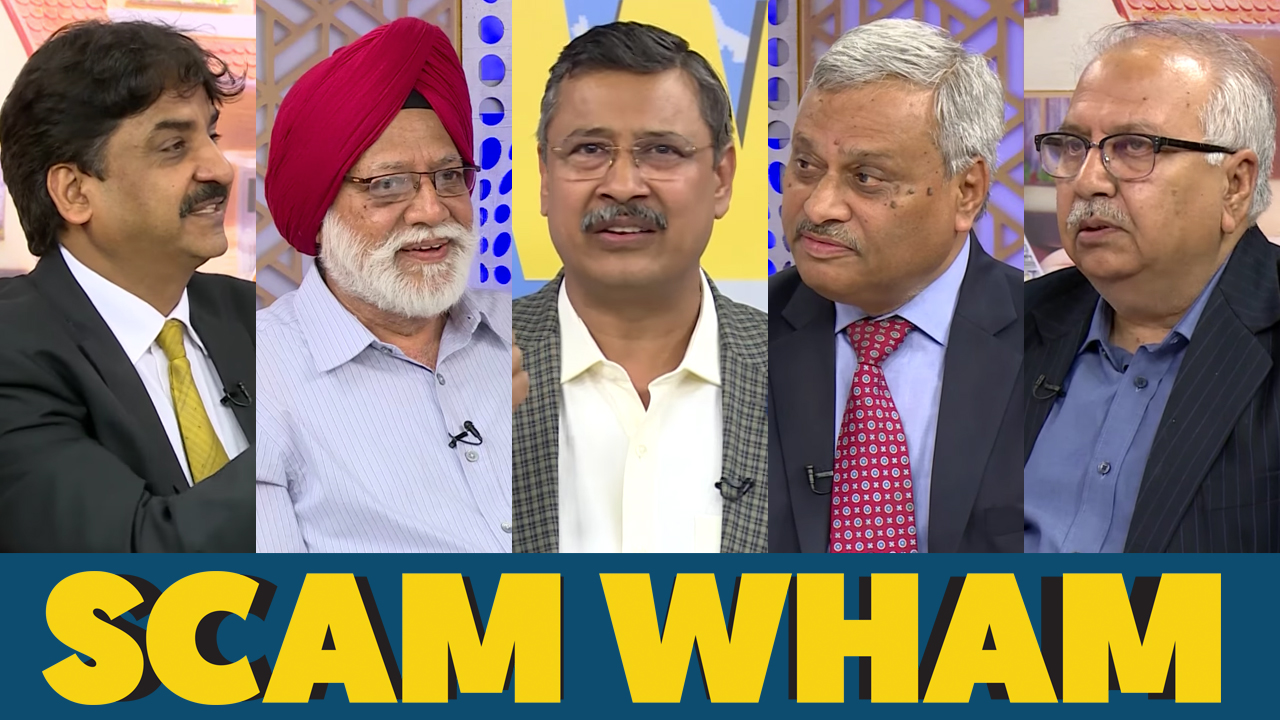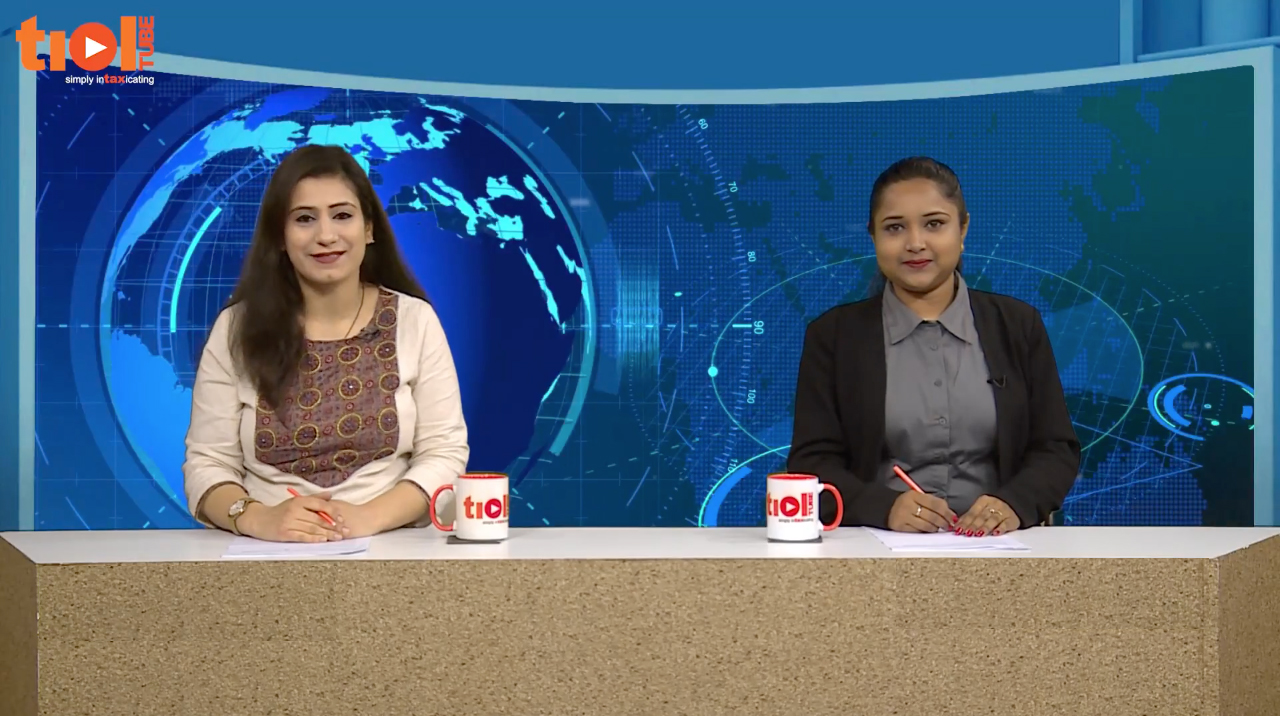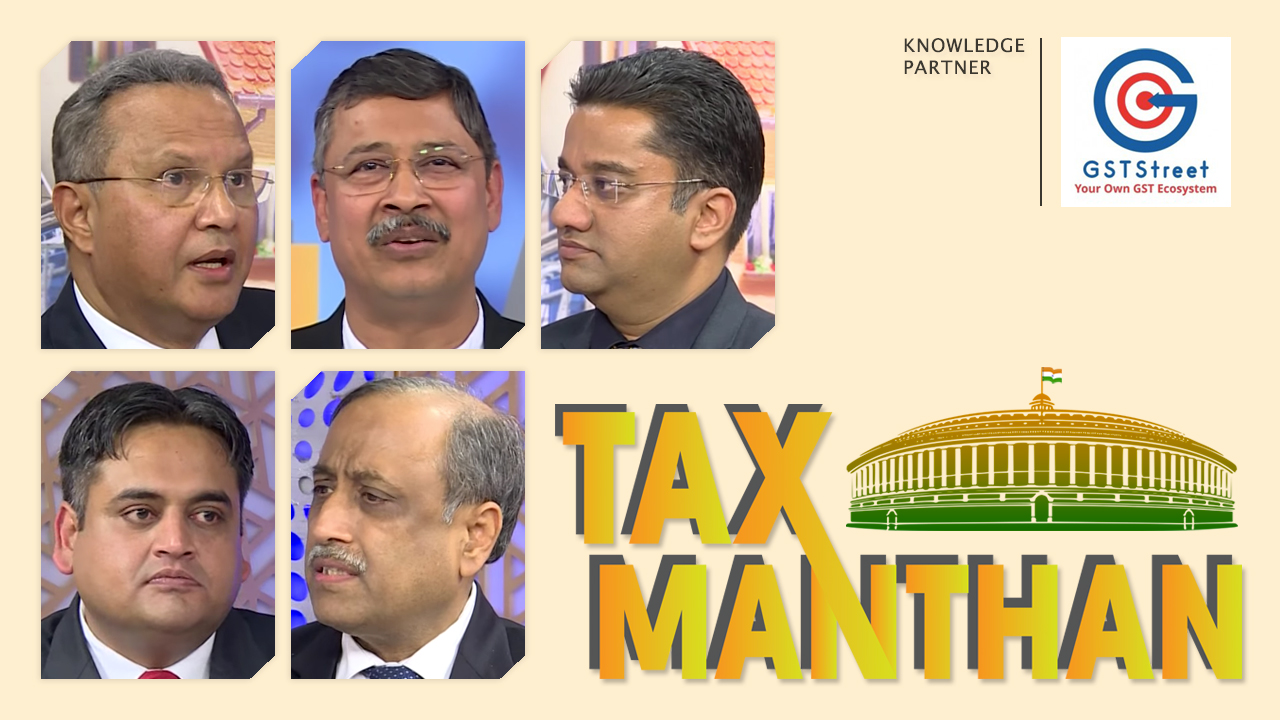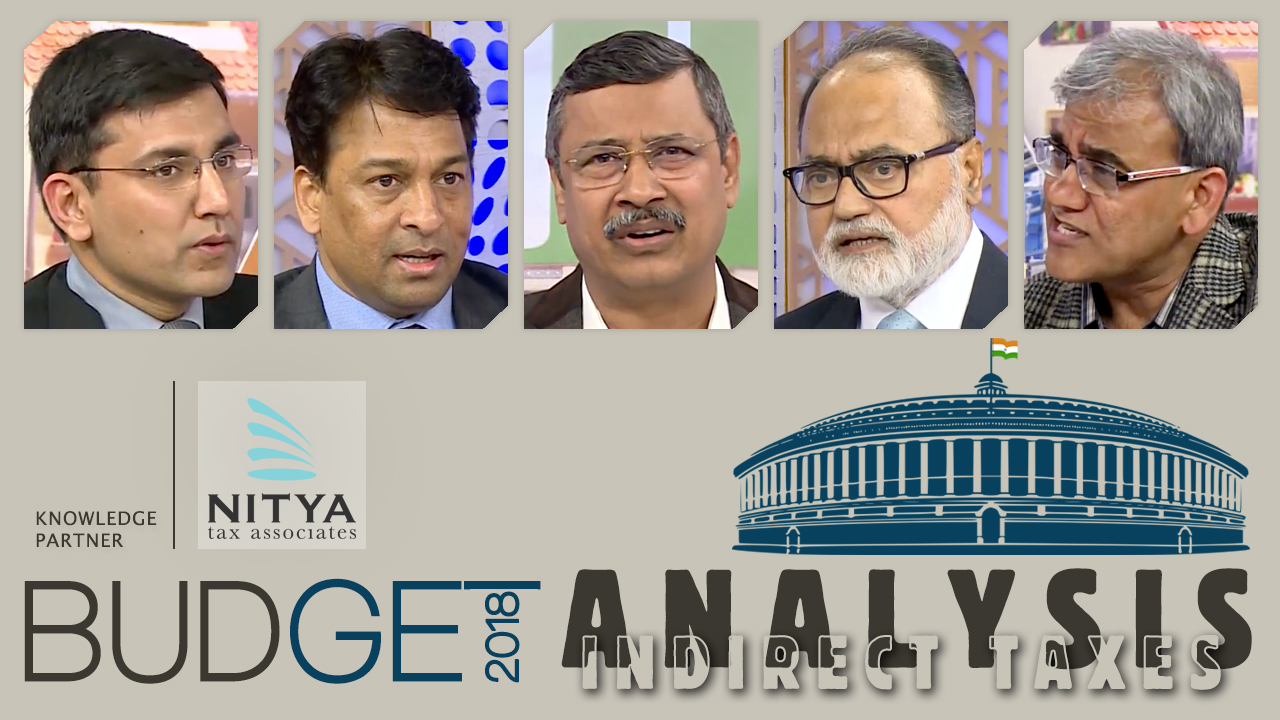2018-TIOL-392-HC-AHM-CX + Story
Bharat Vijay Mills UoI
CX - Corrigendum is not a piece of legislation, cannot be applied retrospectively: High Court [para 20]
CX – Duty in the present case is sought to be collected at rates higher than the published rates by making correction nearly three years after the rates were published and erroneously re-published - Present is the case of series of errors which had every possibility of misguiding the manufacturer into believing that as per the Finance Act, 1996, the rate of duty prescribed is 10% - contention that corrigendum dated 21st September 2000 must relate back to the original publication of rate of duty and that in any case the Parliament has power to make law with retrospective effect cannot be accepted - The question of retrospective effect of such correction cannot be equated with exercise of the power of the Parliament to make a law with retrospective effect - If the corrigendum was needed to apprise the public at large about the correct rate of duty, applying it from the original date of prescription of the revised rate of duty would frustrate the purpose - Show Cause Notices set aside and Petition allowed: High Court [para 17, 18, 20, 25] -Petition allowed : GUJARAT HIGH COURT
2018-TIOL-391-HC-KERALA-CX
RP Techsoft International Pvt Ltd Vs UoI
CX - The petitioner procure IT products and install in premises of customers after customizing it according to choice and options of such customers - Issue relates to an assessment order passed by Commissioner of Thiruvananthapuram division - Claiming the entire activities of petitioner as a manufacture of marketable products, Commissioner assessed the petitioner under Central Excise Act and demanded the petitioner to pay the duty - As adverted in impugned order itself, it has to be shown that the petitioner has manufactured goods - Without there being an examination of each of goods alleged to have been manufactured by petitioner, Commissioner should not have ordered that petitioner is liable to pay excise duty based on an assessment for service tax - The main activity, according to petitioner, is the supply and installation of goods purchased from the vendor by integrating such goods to the need of such customer - In view of the fact that the Commissioner had not adverted to the vital aspect, it is necessary to remand the matter back to Commissioner for reconsideration: HC - Matter remanded : KERALA HIGH COURT
2018-TIOL-742-CESTAT-AHM
CCE Vs Crest Composites and Plastics P Ltd
CX - Issue involved in this case is whether the assessee is eligible for the refund - Assessee discharged the Service Tax liability twice once by debiting the amount in Cenvat Credit and second by way of cash deposit at the instance of Revenue authorities - It is the case of assessee that the amount paid by cash by them on the instance of Revenue is uncalled for as during the period in question, there was no bar for utilisation of Cenvat Credit for discharge of Service Tax under reverse charge mechanism - First Appellate Authority has correctly interpreted the law to hold that the Order in Original that rejects the refund claim of assessee is incorrect - The provisions of CCR, 2004 during the period in question do not provide or explicitly barred utilization of cenvat credit for discharge of ST liability under the reverse charge mechanism - Said clause was introduced with effect from 2012 - Identical issue was decided by Division Bench in case of Kansara Modler Ltd and the ratio of said decision would consequently apply in the case in hand - Impugned order is correct and legal and does not require any interference: CESTAT -
Appeal rejected
: AHMEDABAD CESTAT
2018-TIOL-741-CESTAT-ALL
Hero Briggs and Stratton Auto Pvt Ltd Vs CCE
CX - Assessee engaged in manufacturing of IC Engines for two wheeler primarily for supply to M/s MAL - Assessee had paid an amount to M/s MAL and M/s Briggs and Stratton of USA towards R & D expenditure - On the said two expenditures incurred by assessee for R & D, there was proposal to include them in assessable value under Rule 8 of CEVR, 2000 and there was a proposal in said SCN to demand of Rs. 3,82,08,262/- on that account under sub Section (1) of Section 11A of CEA, 1944 - Said two amounts were spent by assessee for purchase of knowhow and which were as per law not liable to be added to assessable value except in a case where Central Excise duty is charged on the basis of cost of manufacture under Rule 8 of Rules - SCN nowhere established that goods were not sold but they were cleared on stock transfer basis without involvement of sale - Therefore, there was not any case of invocation of Rule 8 - Thus, SCN is totally misconceived in so far as the demand of Rs. 3,82,08,262/- is concerned - In so far as demand of profit sharing is concerned, said SCN nowhere established that clause of profit sharing was related to goods manufactured by assessee - The submission by assessee that said clause was only in respect of goods traded by assessee is acceptable for the reason that there is no such contention in the said SCN that the clause related to profit sharing was in respect of goods manufactured by assessee - The question of imposition of penalty does not arise: CESTAT -
Appeal Allowed
: ALLAHABAD CESTAT
2018-TIOL-740-CESTAT-MAD
Schneider Electric Infrastructure Ltd Vs CCE & ST
CX - Assessee engaged in manufacture of "Vacuum Circuit Breakers" in their unit at Salt Lake Works - Some of these circuit breakers are also cleared on payment of duty to assessee's own unit at AEI Works situated in Calcutta - Revenue entertained a view that the transport of duty paid Vacuum Circuit Breakers from SLW to AEI unit of assessee are not duly accounted for and the credit availed by AEI unit on such items are not available due to various reasons - Admittedly, various grounds were alleged for such denial before adjudicating authority - However, as pleaded by assessee, the only ground on which denial was ordered by adjudicating authority is mismatch of coding and description between supplier's document and records maintained by receiver - There is no overwriting or manipulation of invoices as inferred in original order - In fact, there is no description of goods in invoices and only code numbers are mentioned and admittedly the multiple grades of inputs were shown separated by stroke - It is not correct to allege that descriptions are not matching when there is no description based on words to explain the nature of goods in duty paid document - Item code is description and as explained the codes are not varied substantially except for making it more specific in recipient's end for further accounting and monitoring - There is no legal or factual basis for denial of credits - Original authority has recorded that inputs were received by AEI and it would appear that said inputs are essential for the manufacture of further dutiable products at AEI Works - Neither there is allegation regarding alternate sourcing of these inputs nor any evidence with reference to diversion of duty paid inputs by SLW to any other destination other than AEI with reference to theses impugned goods - There is no allegation or discussion in proceedings before original authority on these aspects: CESTAT -
Appeal Allowed
: CHENNAI CESTAT
2018-TIOL-739-CESTAT-DEL
Aditya Cement Vs CCE & ST
CX - Assessee engaged in manufacture of ordinary portland cement - Department alleged that assessee were manufacturing cement by using slag, in addition to clinker, and actual quantity of slag consumption was not recorded - The full quantum of cement manufactured was also not recorded - In initial statement, Quality Controller, Shri Panda, has stated that normally the raw materials comprise of around 90 % of gypsum/clinker along with a small percentage of slag - If it is presumed that entire quantity of slag shown in private records are used in manufacture of cement, the ratio works-out to about 50:50 (clinker and slag) - It has further been argued that cement of such quality cannot be manufactured with plant and machinery available with assessee - However, adjudicating authority has not discussed this aspect.
The allegations against assessee are that they have manufactured cement clandestinely and cleared with payment of duty - To support this charge, only evidence available on record is in form of private records in which some details have been recorded which was initially explained to be quantity of raw materials used and the quantity of final products produced and cleared - The circumstantial evidence in form of two trucks found standing in front of factory is not supported in form of a panchnama - Evidences can, at the most, give rise to doubt in mind of a prudent man that the entire receipt of raw materials and clearance of finished products is not accounted - However, allegations of clandestine clearance is a very serious charge and is required to be established on the basis of tangible evidence - But department has failed to do so to support the allegation of clandestine clearances - Consequently, the impugned order cannot be sustained in light of evidences on record: CESTAT -
Appeal Allowed
: DELHI CESTAT
2018-TIOL-729-CESTAT-MUM + Story
Suyash Laboratories Ltd Vs CCE
CX - Remission of duty - Rule 21 of CER, 2002 - Insurance payment is no proof of accidental occurrence which is a necessary statutory pre-requisite for grant of remission - Remission is a special privilege that is accorded only in the prescribed circumstance as goods become leviable to duty immediately upon manufacture - Commissioner had rendered a clear finding of adequate care not having been taken by the appellant and nothing had been brought on record by the assessee to convince that the finding in the impugned order is erroneous - remission is available only if Commissioner is satisfied that the goods were destroyed by unavoidable accident or natural causes - claim of unavoidable accident not satisfied - appellant has, without justifiable cause, delayed the filing of intimation - Mere lodgement of FIR immediately after incident and filing of insurance claim is no substitute for ascertainment of revenue implication which are triggered only upon intimation to the jurisdictional office which was not done - It is not without reason that the guidelines prescribed in Supplementary Instruction 2005 require lodgement of FIR within twenty-four hours of accident - remission claim rightly rejected by Commissioner - appeal dismissed: CESTAT [para 3, 4] -
Appeal dismissed
: MUMBAI CESTAT
CUSTOMS SECTION
2018-TIOL-385-HC-MAD-CUS + Story
Transworld Shipping Services Pvt Ltd Vs Government of India
Cus - Court cannot shut its eyes to the delay in adjudication of the show cause notice and the delay in disposing the Appeal Petition - delay is inordinate and arbitrary - it has taken six years for the Authorities to complete the adjudication from the date of discharge, which is found to be unreasonable - Courts have held that, if adjudication process is completed within the period of five years, it would be reasonable as the Agent cannot be directed to endlessly keep the bond alive - the Revisional Authority, Government of India, having found that no blame can be fastened on the petitioner for intentionally being the cause for the short landing, this is a fit case, where, the entire penalty imposed on the petitioner requires to be vacated - as the first respondent was satisfied that there is no mens rea on the part of the petitioner, he ought to have exercised its powers, and deleted the entire penalty - inordinate delay in concluding the adjudication proceedings is unreasonable - Impugned order set aside and Writ Petition allowed: High Court [para 25, 28 to 33] -
Petition allowed
: MADRAS HIGH COURT
2018-TIOL-384-HC-MUM-CUS
Indu Bhushan Vs UoI
Cus - the Customs Department received an application from two shipping lines, seeking amendment in the Import General Manifest u/s 30 of the Act, to substitute the name of the petitioner herein as the importer - This was in respect of some goods imported by the petitioner - The petitioner filed the present writ, seeking that action be taken on such application - It was also sought that certain bills of entry be removed from the system of the Department & that filing of fresh Bills of Entry be permitted & clearance of goods be allowed.
Held - Considering the decision of this court in Agrocorp International Pte. Ltd. Vs. Union of India , the competent authority directed to consider such application, subject to the petitioner executing an indemnity bond in favour of the authorities indemnifying them of the claims and protests raised by the private parties regarding the goods in question - If such bond is found to be in order, appropriate orders be passed within a week - No opinion on merits: High Court (Para 1,7) -
Writ Petition Partly Allowed
: BOMBAY HIGH COURT
2018-TIOL-383-HC-MUM-CUS
Ramdev Metal Mart Vs UoI
Cus - some goods belonging to the assessee were seized for not complying with Bureau of Indian Standards (BIS) - Duty demand was raised, of which an amount was deposited under protest - Thereupon, the assessee filed the present writ, seeking that the investigations be completed, the duty deposited under protest be refunded and that those goods which met the BIS standards be released - The assessee also sought that no security be demanded for releasing the goods and an amount of Customs duty paid on live Bills of Entry be refunded.
Held - the powers of authorities to issue SCNs and to adjudicate the matter as per law, cannot be interfered with - The assessee is directed to approach the competent authorities for provisional release of the goods - Such application be disposed off as fast as possible: High Court (Para 1,2) -
Writ Petition Dismissed
: BOMBAY HIGH COURT









